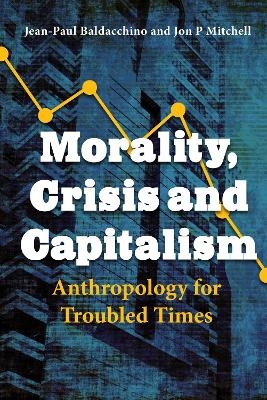
Dynamics of Emigration
Berghahn Books (Verlag)
978-1-80073-609-2 (ISBN)
As a pioneering volume to consider the impact of exile on historical scholarship in the twentieth century in a systematic and global way, looking at Europe, North America, South America and Asia, Dynamics of Emigration asks about epistemic repercussions on the experience of exile and exiles. Analyzing both the impact that exile scholars had on their host societies and on the societies they had to leave, the volume investigates exiles’ pathways to integration into new host societies and the many difficulties they face establishing themselves in new surroundings. Focusing on the age of extremes and the realms of exile from fascist and right-wing dictatorships as well as communist regimes, the contributions look at the reasons scholars have for going into exile while providing side-by-side examination of the support organizations and paths for success involved with living in exile.
Stefan Berger is Professor of Social History and Director of the Institute for Social Movements at Ruhr-Universität Bochum in Germany. He is also Executive Chair of the Foundation History of the Ruhr and an Honorary Professor at Cardiff University in the UK. Before 2011 he had full chairs of History at the Universities of Manchester (2005 – 2011) and University of Glamorgan (2000 – 2005).
Introduction: Dynamics of Émigré Scholarship in the Age of Extremes
Stefan Berger and Philipp Müller
Chapter 1. ‘A Private Perch’: Cosmopolitanism, Nostalgia and Commitment in the Émigré Historian’s Persona
Jo Tollebeek
Chapter 2. The Émigré Historian: A Scholarly Persona?
Herman Paul
Chapter 3. The Dictator’s Long Arm: Cross-Border Persecution of Exile Historians
Antoon de Baets
Chapter 4. Nativism and the Specter of Anti-Semitism in the Placement of German Refugee Scholars, 1933–1945
Joseph Malherek
Chapter 5. Defending Objectivity: Paul Oskar Kristeller and the Controversy on the Historical Knowledge in the United States
Irina Mykhailova
Chapter 6. Émigré Historians and the Postwar Transatlantic Dialogue
Philipp Stelzel
Chapter 7. Between Integration and Institutional Self-Organisation: Polish Émigré Scholarship in the United States, 1939–1989
Kai Willms
Chapter 8. The Unlikely Careers of Laura Polanyi (1882–1959) as a Historian: The Intersections of Exile, Gender, Class and Age
Judith Szapor
Chapter 9. ‘From Geistesgeschichte to Public History’: The Years of Emigration of the Hungarian Historian Béla Iványi Grünwald, Jr.
Vilmos Erös
Chapter 10. Building New Networks: Russian Émigré Scholars in Yugoslavia
Branimir Janković
Chapter 11. Networking in Santa Barbara, Writing History: Dimitrije Đorđević and the Comparative History of Balkan Nations
Michael Antolovic
Chapter 12. António Sérgio and José Ortega y Gasset: History, Theory and Experiences of Exile
Sérgio Campos Matos
Chapter 13. Emigré Portuguese Historians in France between the Second World War and 25th April 1974: New Ways and Places of Thinking and Writing Portuguese History?
Christophe Araujo
Conclusion: New Perspectives on Emigre Scholarship and What Remains to be Done
Stefan Berger and Philipp Müller
Index
| Erscheinungsdatum | 21.07.2022 |
|---|---|
| Reihe/Serie | Making Sense of History |
| Verlagsort | Oxford |
| Sprache | englisch |
| Maße | 152 x 229 mm |
| Themenwelt | Sozialwissenschaften ► Politik / Verwaltung ► Politische Systeme |
| Sozialwissenschaften ► Politik / Verwaltung ► Politische Theorie | |
| Sozialwissenschaften ► Soziologie | |
| ISBN-10 | 1-80073-609-6 / 1800736096 |
| ISBN-13 | 978-1-80073-609-2 / 9781800736092 |
| Zustand | Neuware |
| Haben Sie eine Frage zum Produkt? |
aus dem Bereich



